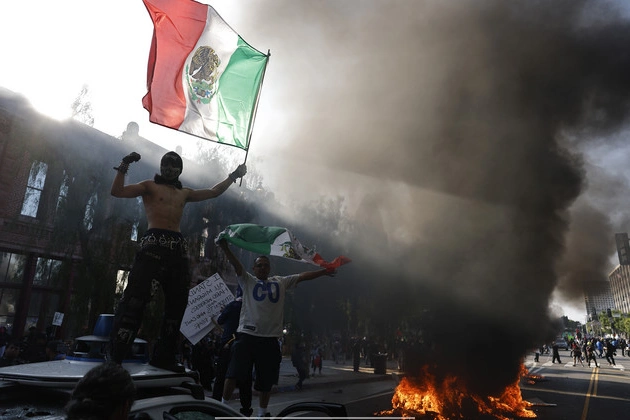
Los Angeles protests against immigration policies often feature the Mexican flag as a powerful symbol of resistance and pride. Learn why demonstrators hoist this flag and what it represents in the context of political activism.
The Mexican Flag: A Symbol of Resistance
During immigration protests in Los Angeles, the Mexican flag is prominently displayed as a sign of resistance to anti-immigrant sentiments. The red, white, and green colors stand out against the backdrop of protests, conveying a message of solidarity and defiance.
Historical Context
The use of the Mexican flag in protests harks back to historical events like the fight against Proposition 187 in 1994. This initiative marked a turning point for Latino political power in California and galvanized activists to uphold their rights and identity.
Angelica Salas, an influential activist in Los Angeles, emphasizes the importance of the Mexican flag as a symbol of Mexican-American pride and unity. For protesters, carrying the flag is a statement of cultural heritage and a rejection of discrimination.
Youthful Support and Cultural Identity
Young protesters, many of whom are second- or third-generation Mexican Americans, use the flag to show solidarity with their heritage and parents. It is a way of affirming their cultural identity and challenging societal pressures to assimilate.
Community Pride and Multigenerational Roots
With California’s deep connection to Mexico and a sizable population of Mexican descent, the Mexican flag symbolizes community pride and multigenerational roots. It reflects a diverse and proud heritage that resonates with many residents.
Overall, the Mexican flag serves as a poignant symbol of cultural pride, resistance, and unity in Los Angeles protests, embodying the ongoing struggle for immigrant rights and recognition.











